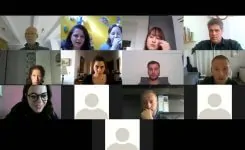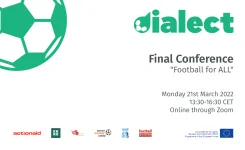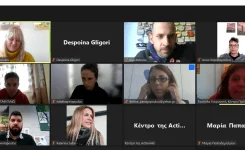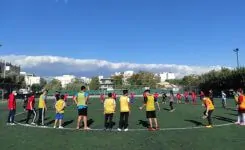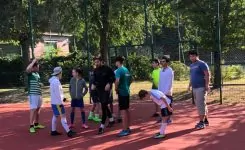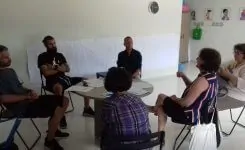Dialect News
Focus groups in Italy
Despite the Covid-19 situation and relative precautional measures, ActionAid Italy managed to organise three DIALECT focus groups in September, in Naples. We met and discussed with representatives of local authorities and institutions, of NGOs and with parents.
The first meeting took place with the patronage and presence of Ciro Borriello – the Naples City Councillor for Sport – and other local and sport authorities’ representatives, including FIGC (Federazione Italiana Giuoco Calcio) and CSAIN (Centri Sportivi Aziendali e Industriali). We focused on the institutions’ awareness of all issues linked to access to sport, the causes of exclusion and discrimination. More in detail, we analysed structural shortcomings and the limits of intervention by institutional agencies on the spread of feelings of intolerance and hate speech.
In the headquarter of Dream Team Association, a women’s football team from Scampia – north suburbs of Naples – we discussed with NGOs’ local operators and experts on human rights and protection of migrants about associations’ limits in building intervention networks with other metropolitan areas, the challenges to tackle institutional authorities’ indifference, and the issue of sport’s exploitation for spreading hate speech and narratives. Through the ActionAid’s Reflection-Action methodology “Chapati Diagram” and group work, we structured a path to identify relevant actors and actions to be implemented.
A third focus group was addressed to the parents of the adolescents participating in the DIALECT project. We had six participants – both in presence and online – among Neapolitans and parents with a migrant background. We discussed the issue of access to sport: the exclusion for the weakest section of the population, the lack of inclusive capacity by federal authorities of migrant youth in sports and of cultural intervention on women’s football promotion.
Finally, we had the chance to interview ten adolescents with a migrant background and ten Neapolitan adolescents. We were impressed by their maturity and independence in their personal and sport life:
“If I hear my dad – said Manuel (12 yo) – calling a player ‘nigger’, I’ll think at least for one second that he can be right, even if I rationally know that he isn’t”.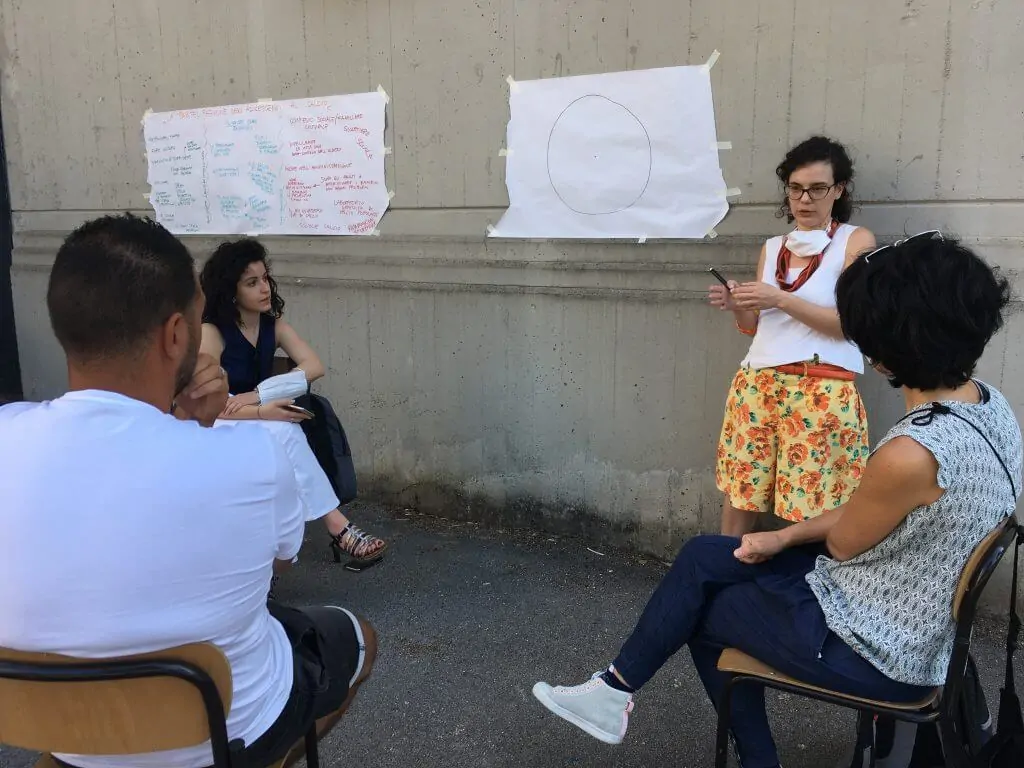
What have we learned so far?
The world of children, centred on sports activities, is basically extraneous to discriminatory behaviours and episodes. However, the influence of adults – those seen on television and those who surround them daily – is decisive to drag them into a negative vortex from which many will not succeed to go out.
Focus groups cleared up the awareness that sport can be fundamental for building the consciences of the youngest, contributing to the establishment of a system of values, based on the respect for others, the community and sharing. Nonetheless, the occurring of discrimination episodes and the lack of actors able to lead youth towards a sport and personal virtuous path let sport become an outlet for socioeconomic and ethnic exclusion.

